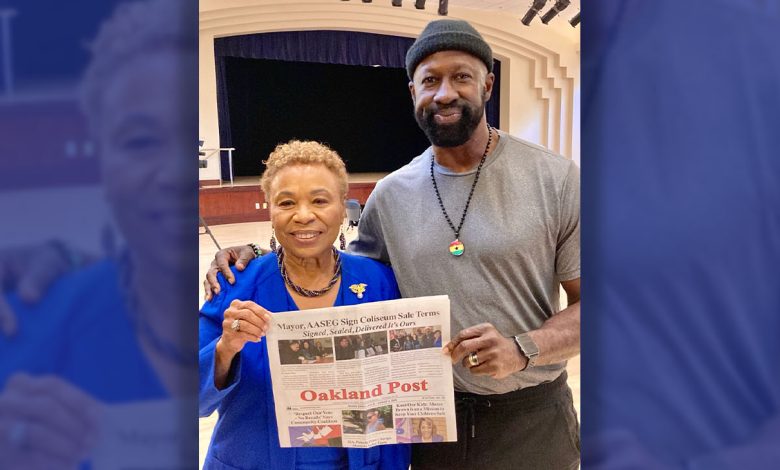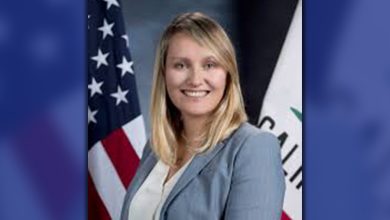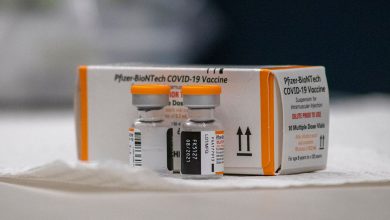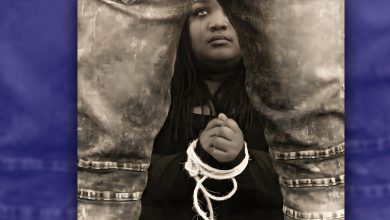Rep. Barbara Lee Hosts Roundtable on Public Safety, Congratulates AASEG on Oakland Coliseum Deal

By Elinor Simek | UC Berkeley News
Last month, after years of debate, U.S. Surgeon General Vivek Murthy declared gun violence an urgent public health crisis and released an extraordinary report outlining its devastating consequences.
Murthy’s 32-page advisory is the first federal government report to fully acknowledge the health impacts of gun violence on Americans, whether they are direct victims, families, and friends of victims, or live in communities that face ongoing street violence or have experienced a mass shooting.
To Jason Corburn, a professor at UC Berkeley School of Public Health, gun violence has always been a public health issue, and he has just finished teaching students at Berkeley School of Public Health how to address it as one.
The class, “Urban Gun Violence Prevention: A Public Health Perspective,” was Berkeley Public Health’s first course dedicated to addressing urban gun violence.
“Regardless of where you stand on guns, there is no doubt that gun violence is a key contributor to disability, injury and of death for Americans,” said Corburn. “Gun violence is both a source of trauma and stress and a response to unaddressed traumas. Urban gun violence is a community health equity issue, since Black and Brown youth, men under 35 years old, and hyper-segregated neighborhoods are most likely to experience firearm violence.
“Yet, this is also a population and place issue, because the impacts of firearm violence can also affect others in the community, regardless of direct or witnessed experience,” Corburn said.
Firearm-related injuries, such as suicides and homicides, are the No. 1 cause of death for children and adolescents (ages 1 to 19) in the U.S., with the heaviest burden disproportionately falling on the Black community. Homicide is the No. 1 cause of death for Black men under 44 years-old in the U.S.
Urban gun violence is sometimes called “street violence” or “community gun violence,” and is defined as violence in public spaces between individuals who do not know each other intimately. It’s distinct from domestic violence, mass shootings, or suicide.
“By offering this course, I wanted to bring attention to today’s urban gun violence epidemic,” Corburn said. “While this type of violence is often overlooked compared to the bigger headlines of mass shootings, urban gun violence is ongoing, harming the same communities over and over again.”
Corburn, a joint professor in the Department of City and Regional Planning, taught the class with Joe Griffin and DeVone Boggan. Griffin, who received his MPH and DrPH from Berkeley Public Health, is executive director of Youth ALIVE!, an Oakland-based nonprofit organization that works to reduce violence.
Boggan, also a UC Berkeley grad, is chief executive of Advance Peace and former director of Richmond’s Office of Neighborhood Safety (ONS). Corburn has worked in partnership with Richmond’s ONS and Advance Peace since 2007.
The class was structured as a seminar which combined readings, videos, and discussions with researchers and practitioners. Anchoring the course was a review of structural racism in America and how specific policies, such as redlining, dehumanizing policing, and environmental injustices, create the social, spatial and institutional conditions for gun violence.
Ten students from Berkeley Public Health and City and Regional Planning participated. The instructors co-facilitated class each week, along with students who gave presentations.
Each class also hosted a guest speaker from leading research and governmental organizations around the country. The guests, many of whom had firsthand experiences with gun violence, led students in discussions of street outreach, participant engagement, hospital-based interventions, the role of media and other potential solutions to urban gun violence.
Among the speakers was Greg Jackson, deputy director of the first White House Office of Gun Violence Prevention, created in 2023. Other guests included Abené Clayton, a journalist who is part of The Guardian’s Guns and Lies in America project; David Muhammad, executive director of the National Institute for Criminal Justice Reform, Dr. Shani Buggs and Dr. Kravitz-Wirtz from UC Davis’s Violence Prevention Research Program; and Sam Vaughn, director of Richmond’s Office of Neighborhood Safety (ONS); among others.
Inspiring students
“The class was an amazing opportunity to learn of the cutting edge research within the gun violence prevention field,” said Ricardo Sarmiento, who graduated from UC Berkeley in May with an MPH in Health Policy & Management. “The guests that were invited had their finger on the pulse of the community.
“The class used the lenses of public health, city planning, policy advocacy, and community organizing,” Sarmiento said. “The presenters all provided different approaches to reduce gun violence.”






